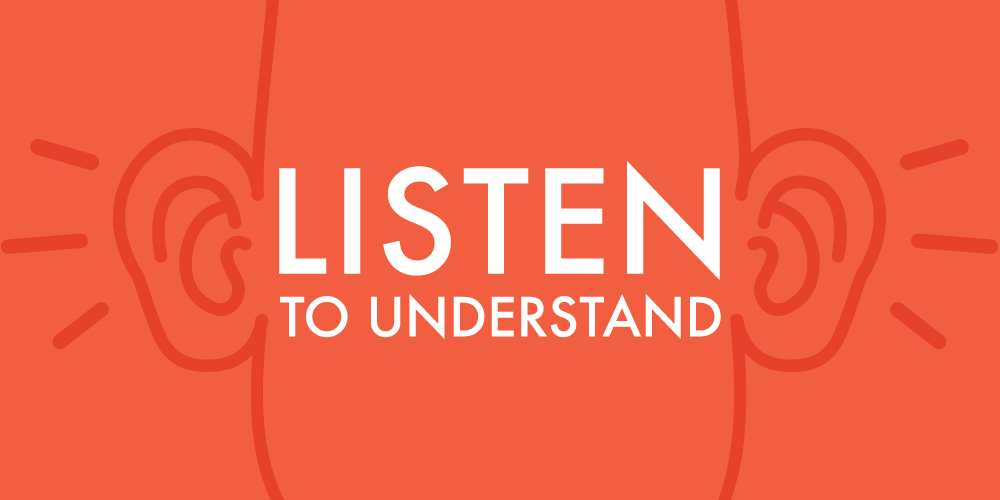Studies have shown that those who listen have more successful relationships.
Diana Raab Ph.D., Via Psychology Today
For the most part, in all relationships there’s one person who speaks and one who listens. But . . . is the listener really listening? Many people think they’re better listeners than studies show they actually are.
The goal of deep listening is to acquire information, understand a person or a situation, and experience pleasure. Active listening is about making a conscious decision to hear what people are saying. It’s about being completely focused on others—their words and their messages—without being distracted.
It’s been said that one of the most common reasons why people see therapists is to have their stories heard. In order to have your story heard, you need to have a listener. Listening and empathy skills are the hallmarks of good communicators, leaders, and therapists. Listening skills can be learned, but the reality is, some people just tend to be better listeners than others.
The importance of listening in interpersonal relationships cannot be overemphasized. One study conducted by Faye Doell (2003) showed that there are two different types of listening: “listening to understand” and “listening to respond.” Those who “listen to understand” have greater satisfaction in their interpersonal relationships than others. While people may think they might be listening to understand, what they’re really doing is waiting to respond.
And, when individuals try to “fix” other people, they are most often responding to their own need to influence. The same study showed that couples who have undergone therapy together tend to be better listeners than others because they’ve picked up some valuable tips along the way. It’s been said that women usually want to be heard, and men want to fix or respond.
According to psychologist Carl Rogers, active or deep listening is at the heart of every healthy relationship. It’s also the most effective way to bring about growth and change. Those who are heard tend to be more open, more democratic in their ways, and are often less defensive. Good listeners refrain from making judgments, and provide a safe environment and container for speakers.
By listening carefully when someone speaks, we’re telling them that we care about what they’re saying. It’s also important to remember that listening is contagious. When we listen to others, then chances are they will be more inclined to listen to us.
The good news is that we can learn to be better listeners; however, listening takes practice. The more we do it, the better we get at it, and the more positive our interpersonal relationships will be. As Jon Kabat-Zinn says in his book Wherever You Go You Are There, everything takes practice. We need to just keep at it.
Here are some tips for becoming a better listener:
- Put yourself inside the mind of the speaker.
- Listen for meaning.
- Pay attention to body language.
- Cultivate empathy.
- Avoid making judgments.
- Look into others’ eyes when they’re speaking.
- Pay attention to the feelings associated with the words.
- Notice the speaker’s tone and inflection.
- Repeat in your own words what someone has told you (empathetic reflection).
- Acknowledge that you’re listening by nodding or saying “Uh-huh.”
- Occasionally summarize others’ comments when given the chance.
References
Doell, F (2003). “Partners’ listening styles and relationship satisfaction: listening to understand vs. listening to respond.” Graduate thesis. The University of Toronto Psychology Dept
Grogan, J. (2013). “It’s not enough to listen.” Psychology Today. March 11.
Kabat-Zinn, J. (1994). Wherever You Go You Are There. New York, NY: Hyperion.
Rogers, C. R. & R. E. Farson. (1987). “Active Listening.” Communicating in Business Today. New York: D.C. Heath & Co.


